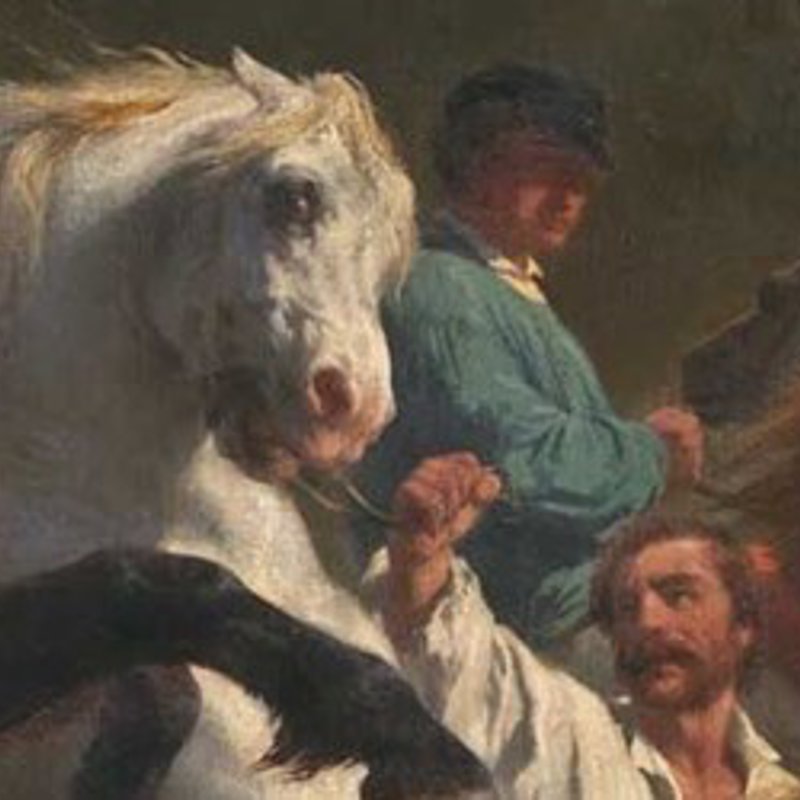
Why did Rosa Bonheur hide herself in this painting?
This is a YouTube video player. Below the video are the title and the view time.
About
She wore trousers, didn't ride side saddle and lived with her female partner, Nathalie Micas, in 19th-century France. She also painted a self-portrait into the middle of one of her most spectacular works, 'The Horse Fair'.
But who was Rosa Bonheur? And how did she manage to challenge conventions of the time, living as a queer woman and one of the most celebrated female artists of the 1800s?
The Bernays Curatorial Fellow of British Paintings, Jon King, is joined by art historian and independent curator, Amy Mechowski, to discuss the life of Rosa Bonheur. They delve into her life as an artist and her love of animals, as well as exploring her queer identity and her relationship with Nathalie Micas.
Reading list
Ashton, Dore. Rosa Bonheur: A Life and a Legend (London: Secker & Warburg, 1981).
Chadwick, Whitney. ‘The Fine Art of Gentling: Horses, Women and Rosa Bonheur in Victorian England’, in Kathleen Adler and Marcia Pointon eds. The Body Imaged: The Human Form and Visual Culture Since the Renaissance (Cambridge and New York: Cambridge University Press, 1993), pp. 89–107.
Fowler, Michael Anthony. ‘Rosa Bonheur the Amazon? Equestrianism, Female Masculinity, and The Horse Fair (1852–1855)’, Journal of Lesbian Studies (31 Oct 2023): 1–26.
Hewitt, Catherine. Art is a Tyrant: The Unconventional Life of Rosa Bonheur (Icon Books, 2020).
Saslow, James M. “Disagreeably Hidden’: Construction and Constriction of the Lesbian Body in Rosa Bonheur’s Horse Fair’, in Norma Broude and Mary Garrard eds., The Expanding Discourse: Feminism and Art History (Routledge, 1992), pp. 186–205.
Digital activity at the National Gallery is supported by Bloomberg Philanthropies Digital Accelerator

This video was produced for the National Gallery’s Women and the Arts Forum conference, ‘Widening the Narrative’, which took place on 26 June 2024. It was supported by The Diane Apostolos-Cappadona Trust in honour of Stacia Apostolos.













